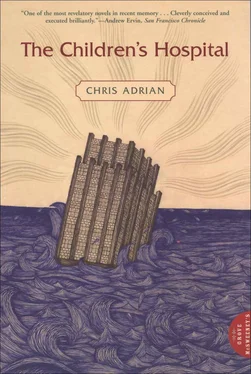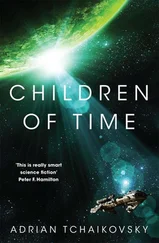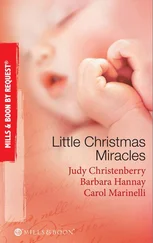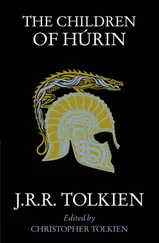But it always seemed like such a good idea when they did it, and it never took much more than their prearranged signal — the single finger placed on top of the head — to get him to agree. And it hardly seemed so bad, even after they finished and lay panting against each other, face to face, both staring guiltily at their pagers as if inviting from them a shrill, musical reprimand. There were worse things one could be doing. There were a multitude of drugs available for the consumption of the enterprising medical student — Rob was a competent enough hacker and Jemma a thief with long childhood experience, and not even the monolithic pyxis system that guarded every medication would have been able to withstand them if they had chosen to shoot up some propofol or snort morphine or place a row of fentanyl patches along their spines. They could be exceeding their authority in all sorts of ways — more a temptation for Rob than for Jemma — by attempting complicated procedures without supervision. There were babies they could have been dropping and children whose unshielded eyes might cry to a more sinister couple to be plucked out and parents vulnerable to lies and rumors of cure or of death. There was mischief worse than kissing Rob and lifting off his shirt. She was reluctant to give up his lips but eager to bare his belly and his chest, and because she would not pull her mouth away from his he left the shirt hanging, a collar around his neck. It was nothing to hand each other the gift of a screwing, and more than nothing. It was a great thing, and the greatest thing — not the end of the world but a way to put the world utterly at bay and escape momentarily and intermittently from her awful past, her anxious present, and her dispiriting future, a way to escape from the hospital, a way to not be here — to undo the pink cord that held up his scrubs, pull down his pants, sing out the long O, and fall on him with her mouth.
Their courtship was complicated. Long before he transferred into her class in their second year of medical school she had become convinced that everyone she loved was required by fate or God to die, and what could be more logical than that the wages of death should be loneliness? First her brother had died. When he was seventeen and she was fourteen he killed himself in a ritual of superhuman agony, leaving behind his burnt, partially dismembered body and a book that Jemma could hardly stand to read, though she understood that it was written more for her than for anyone else. She threw it in the Severn River a month after Calvin died.
Her father died next, eaten up swiftly by lung cancer. His first symptom — a fine tremor in his surgeon’s hand — came in the summer when Jemma was seventeen. By January he was bedridden. By April he was delirious, mets in his brain having displaced the tissues that formerly had made a home for his reason. By July he could not speak, but only cried out when something frightened him, and spent whole afternoons in his living-room bed, reaching for invisible things in the air around his head.
“Free at last!” her mother said, after her father was dead. He had never had any time for her, and they had married for all the wrong reasons, or for no reason at all, and she was twenty-one years tired of his selfishness and his mean drunks and his mighty fists, though really it was his blood more than hers that Jemma always found herself encountering in the aftermath of one of their great fights. It would leap out at her against the bright green linoleum of the kitchen floor, or else she would tread in it walking down the dark hallway outside their bedroom, or it would be there in the morning, a pattern on the wall above the breakfast table, spread by a blow to the head with the great bedpost-sized pepper shaker that her mother could wield with the speed and skill of a ninja assassin. There was always a shape to find in the blood, spread into swirls and smears in a clumsy, drunken clean-up, birds and bones and the delicate reaching leaves of a fern. But even so her mother had taken the tenderest care of him in his illness. Calvin would have said that she loved him best when he was utterly at her mercy.
Free at last, her mother planned a trip around the world, and Jemma was not invited. “I’ll come back with your new daddy,” she said, calling Jemma at school on the eve of her departure. “Mr. Belvedere will be his name-o.” It was only six o’clock but she was ten p.m. drunk.
“Have a good time,” Jemma said. “Send lots of postcards.”
“I may not have time for postcards. I’m going to be awfully busy living for myself for the first time in my fucking life.”
“I’m glad for you,” was all Jemma said. But though her mother really had bought a round-the-world airplane ticket, and though she had planned the trip in painstaking detail with a dog-faced travel agent named Sue, and though she had packed six months’ worth of safari clothes and sensible shoes, she never went on the trip. Instead, not long after hanging up with Jemma, she set fire to their house and burned herself up with it. I didn’t see her do it, but I can imagine it as well as Jemma could: her mother settled calmly in the kitchen chair where she was accustomed to do her drinking, smoking with her eyes closed while the walls burned. She left no note.
Three deaths should have been enough to demonstrate Jemma’s danger, but they only made her suspect the horrible truth. It was easy to say instead that insanity and bad genes and tobacco were to blame. Three deaths hurried her more resolutely into the arms of her lover, a boy named Martin Marty who she’d been dating since they were in tenth grade. “We are already a family now,” he said to her one night not long after her mother’s funeral, because ever since Calvin he was always saying things meant to comfort her which only ended up horrifying her. He drove home drunk from a New Year’s party when they were juniors in college and was killed in a collision with a tree. Even then, she didn’t understand, and when the knowledge came, it was in slow bits, accretions that rose a little higher every day in her mind until they spelled out the shape and the letter of her doom. One day she woke up crying and knew it for sure: everyone she had loved was dead, and everyone she loved would die.
So she promised herself she wouldn’t speak to Rob Dickens — she could see her crush as a black affliction hovering over him, and knew it was only wanted for her to speak to him before it would settle. She had so many graves available for swearing on, but that would be no use; she already knew herself for an oath-breaker, tried and untrue. She watched him during lectures, and watched him run by her apartment every morning, knowing she should avert her eyes, and yet she stared at him brazenly, dreadful window whore, and engaged him in weeks of abbreviated morning conversation. She swore she would not go out with him, if he should ask, but when he did ask she said yes without hesitation. And she took a solemn vow not to kiss him, but compelled by necessity, she did that, too. Outside her house, after dinner, she stood above him on a step and bent her head down to put her mouth on his. It was not a chaste kiss. It was very familiar, so intimate it was almost gruesome. She thought about his dinner the whole time she kissed him, the way he had eaten it, the way his thick wrist poked out of his shirt cuff when he cut his meat. She had not tasted veal since she was in fifth grade, when Emma Rose McBurney detailed the sad fate of a veal calf for her, and showed her a movie after school. Jemma had wept at the enormous cruelty of veal, and sworn never to eat it again. But she tasted it in his mouth that night, and on his breath when he blew it into her lungs. She pulled away, gasped a little, and coughed.
“Goodnight!” she said, and ran away upstairs and into her apartment, where a roach was waiting for her, perched on the counter in the little kitchen set in a corner of her living room. It was a great big bug, black as the blackest beetle, and as she stood in the door watching it watch her, her imagination invested it with a parental mixture of fury and concern. Its wriggling antennae were signing to her. Where have you been? it demanded. What were you doing? She hated roaches, but she was afraid to kill it because she suspected it might contain the soul of her first lover — somehow it seemed most likely to be him, and not her brother or her father or her mother. Spiders, frogs, little reptiles — all creatures that horrified her — any of them might contain that soul wandered back to be near her, and so she was gentle toward them. The roach skibbled down a cabinet and ran at her. When she fled it pursued her down the hall, running not just on the floor but on the walls and the ceiling in a big loose spiral. She got to her bedroom, slammed the door and stared anxiously at the space underneath it. It was big enough to admit two roaches, one piggybacking on top of the other, but the roach didn’t come in. He never came into her bedroom — they seemed to have an agreement about that. Still, she imagined him scolding her from the other side of the door, just like a parent might. What were you thinking? he asked. Are you trying to kill him?
Читать дальше












